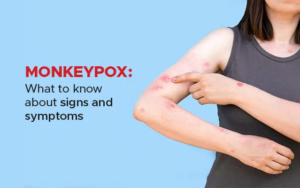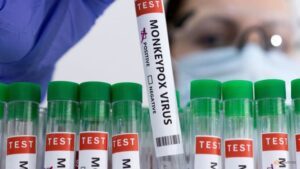[:en]
With the recent spate of monkeypox outbreak in various non-endemic countries such as UK, Portugal and Australia, there are worries whether monkeypox will transpire into another pandemic. Given that we are still midst an ongoing battle with COVID 19, this is much cause for concern.
When it comes to monkeypox, Singapore reported its first imported case on 21 June but has no new cases thus far. Even so, with Singapore being a well-connected financial hub and the easing of border measures, the risk of contracting monkeypox should not be overlooked.
Let’s have a little bit more understanding into monkeypox disease. Monkeypox, as self-evident in its name, is a zoonotic disease. Zoonotic means the infection is transmitted to humans via animals. As a result, monkeypox has mainly been confined to certain places in Africa where the animal lives. In endemic areas, spread of monkeypox may occur when a person comes into close contact with an infected wild animal or upon ingesting the infected animal’s meat.

Monkeypox does not easily spread between people, as it usually requires prolonged face-to-face contact. However, it may still be transmitted through skin-to skin contact, contact with infected surfaces or items and droplet transmission. But not as readily as the coronavirus.
People with monkeypox are contagious from the time they develop their first symptoms until the rash dries off. The initial symptoms are: fever, chills, muscle aches, swollen lymph nodes. After a few days, vesicular or pustular rash tends to appear on the face which then spreads to other parts of the body. The infection is usually self-limiting and resolved within a few weeks.
Travellers to endemic areas should avoid contact with sick animals (dead or alive) that could harbour monkeypox virus (i.e., rodents, marsupials, primates) and should avoid eating or handling wild game.
If you develop monkeypox symptoms, particularly rashes along with fever and swollen lymph nodes, you should isolate from others and seek medical care. Do also ensure rash or blisters remain covered while medical staff are attending to you.[:]

Newsletter